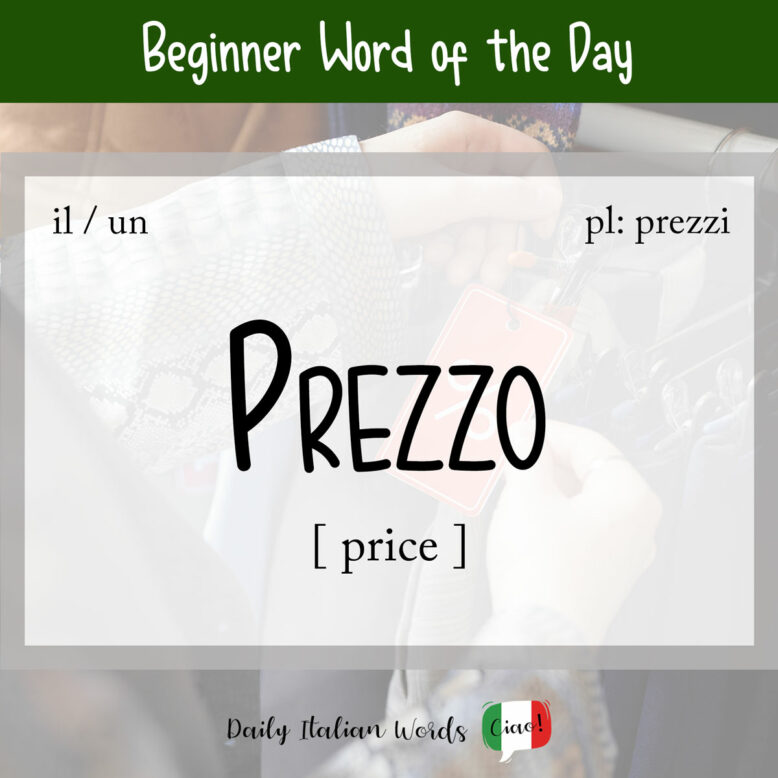Prezzo is a masculine noun that means price or cost in English. It is derived from the Latin pretium meaning value or reward.
prezzo
price

Il venditore mi ha fatto un buon prezzo per questo divano.
The seller gave me a good price for this couch.
Quanto costa questo libro? Non vedo il prezzo.
How much is this book? I can’t see the price.
Here are a few common terms featuring the word prezzo:
- prezzo alto = high price
- prezzo fisso = fixed price
- fascia di prezzo = price range
- prezzo di mercato = market price
- metà prezzo = half price
- primo prezzo = lowest price
- prezzo basso = low price
- prezzo medio = average price
- rapporto qualità prezzo = cost-quality ratio
- prezzo a persona = price per person
- prezzo al pubblico = retail price
The expression al prezzo di can literally mean “at/for the price of” (as in two for the price of one – due al prezzo di uno for example) or figuratively “at the cost of”.
By extension, prezzo has also come to refer to the tag or label showing an item’s cost. The full name for this label is cartellino del prezzo or etichetta del prezzo.
Stacchiamo il prezzo prima che veda quanto mi è costato questo orologio!
Let’s remove the price tag before she sees how much this watch cost me!
Here are a few common verbs you’ll see used with prezzo:
- spuntare un buon prezzo = to get a good price
- sparare un prezzo = to name a price
- calcolare il prezzo = to calculate the price
- alzare / aumentare il prezzo = to raise the price
- abbassare / ridurre il prezzo = to lower the price
- trattare il prezzo = to negotiate the price

Beyond its straightforward definition, prezzo can also refer to the unpleasant results that one must accept or experience in order to achieve, obtain or do something. For example, the price of success could be translated as il prezzo del successo, whereas the price of freedom translates to il prezzo della libertà.
Mettersi la cintura, per quanto sia scomodo, è un piccolo prezzo da pagare per la sicurezza.
Wearing a seatbelt, as uncomfortable as it is, is a small price to pay for safety.
It is from this figurative definition that we also get the word priceless. In Italian, you can translate this word with either of the following expressions: non ha prezzo (literally “it doesn’t have a price”) or senza prezzo (literally “without a price”).
Heather Broster is a graduate with honours in linguistics from the University of Western Ontario. She is an aspiring polyglot, proficient in English and Italian, as well as Japanese, Welsh, and French to varying degrees of fluency. Originally from Toronto, Heather has resided in various countries, notably Italy for a period of six years. Her primary focus lies in the fields of language acquisition, education, and bilingual instruction.


